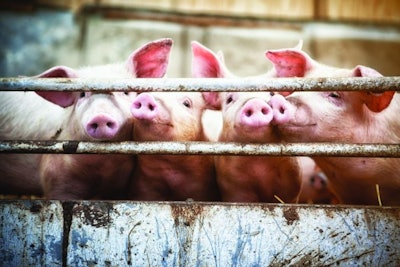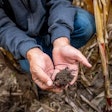
The intertwined nature of the U.S. pet food industry and agriculture has become more evident during the ongoing supply chain disruptions. Our industry has grown accustomed to having ample supplies of a wide variety of agricultural products to manufacture pet foods and treats, which pets around the globe consume. When a wrinkle gets thrown into that supply chain, it causes challenges that can impact product availability and composition.
One additional challenge can come from the presence of animal diseases that affect the availability of meat and poultry products. The current outbreak of highly pathogenic avian influenza (HPAI) across the U.S. is concerning because it could further reduce the availability of poultry-based ingredients in pet food if the virus continues to spread and infect commercial poultry operations. Similarly, an outbreak of African swine fever (ASF) virus in the U.S. could have the potential to decimate the pork industry if introduced into the country, with some estimates showing it could cause upwards of US$50 billion in losses over a decade if left unchecked.
Procedures in place to help mitigate risk
This is one reason why the U.S. Department of Agriculture (USDA), state animal health authorities and the agriculture industry are working hard to prevent, respond and recover from animal and plant diseases. Not only do animal diseases impact product availability but, depending on the virus, they can also impact the ability to export the specific animal-based product.
For example, almost all animal-based feed products and pet food and treats are exported under negotiated export protocols by the USDA’s Animal and Plant Health Inspection Service (APHIS). APHIS utilizes the export certificate for animal-based products, called the Veterinary Services 16-4 form, which includes language that states, “rinderpest, foot-and-mouth disease, classical swine fever, swine vesicular disease, African swine fever and contagious bovine pleuropneumonia do not exist in the United States of America.”
What happens when one of those diseases is present in the U.S.?
That certificate becomes invalid because the U.S. can no longer claim ASF (or other listed disease) “does not exist” in the United States. The ramifications will be significant and will be felt across the entire animal food industry, affecting many animal-origin ingredient products (including aquaculture), which will be barred from exporting their products.
If this certificate is not fixed and renegotiated with the United States’ trading partners, the impact will be widespread across the industry, even to those pet food manufacturers that do not use porcine-based products. Companies supplying non-animal-based products to a customer that manufactures an animal-based product exported under the 16-4 health certificate will also be impacted as those companies will now be unable to export their products.
The American Feed Industry Association (AFIA) and several of our association partners are engaging with APHIS and other government agencies asking that the federal government acts now before the U.S. experiences an outbreak of ASF, or any other listed disease for that matter. APHIS can proactively renegotiate with our trading partners today and prevent a devastating stoppage of trade that could have been prevented with just a little advanced effort.
We encourage all pet food and treat companies to join us in this effort by asking your local APHIS service centers about this issue and what APHIS is doing to address the problem. You can also help by doing your part to support efforts to prevent the introduction and spread of foreign animal diseases through enhanced biosecurity protocols.
The U.S. pet food industry exported over US$2.05 billion in 2021. We must work together to ensure that our competitive edge in the global marketplace continues by reducing animal disease risks at our facilities and urging our government partners to eliminate potential roadblocks before it’s too late.
Briefly: Top 5 takeaways
- The current outbreak of HPAI across the U.S. could further reduce the availability of poultry-based ingredients in pet food if the virus continues to spread and infect commercial poultry operations.
- An outbreak of African swine fever virus in the U.S. could have the potential to decimate the pork industry if introduced into the country.
- The USDA, state animal health authorities and the agriculture industry are working to prevent, respond and recover from animal and plant diseases.
- An export certificate called the Veterinary Services 16-4 form includes language that would become problematic if certain diseases, including African swine fever, ever present in the U.S.
- AFIA and several association partners are engaging with APHIS and other government agencies asking that the federal government acts before the U.S. experiences an outbreak of ASF or any other listed disease.
More pet food industry insights


















